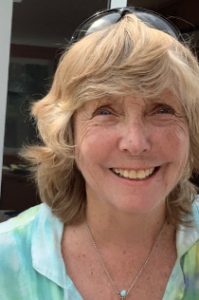

Carol Pine is a person in long-term recovery from alcoholism. She is the co-founder of the Interfaith Addiction and Recovery Coalition based in Savannah, GA., past chair of the Hazelden/Betty Ford Board, current Faith Partners Board member, and co-creator of a Faith Partners Team at House of Hope Presbyterian Church in St. Paul, MN.
This week in Savannah, a woman died alone of alcohol poisoning.
She was one of 261 people in America who died from alcoholism on that particular day and she is one of more than 95,000 people who will die this year.
The Centers for Disease Control and Prevention calls alcoholism the leading cause of preventable death in this country.
I met my new friend about seven years ago in a church on tiny Tybee Island – dubbed, quite accurately, “a drinking island with a fishing problem”. We attended a women’s’ Alcoholics Anonymous meeting hosted by one of our churches.
I watched this gifted woman regain her vitality, her health and her profession as she discovered the gift of 12 Step recovery.
Then she disappeared. Our attempts to bring her back into the safety of AA failed as her brushes with the law, Facebook rants, bitter arguments with family and her isolation increased.
Addiction, we are told, is cunning, baffling, powerful, and patient. It doesn’t matter if a person has 30 days of sobriety or 30 years. The disease of addiction lives with us forever and it is ready to assert itself at any time. In fact, while we attend our weekly 12 Step meetings, we are told that our disease is out in the parking lot doing push-ups. This is no joke. if we find healthy recovery and then we relapse, we will return to an even worse state of addiction that has progressed unabated.
A young woman on Tybee Island–who has also struggled with relapse and now enjoys steady, continuous sobriety–calls alcohol “legal but lethal”.
What can a faith leader in Savannah do if he or she sees signs of addiction or hears about it from friends and family?
If you see something, say something
Our Interfaith Addiction and Recovery Coalition and the Clinton Foundation are equipping our faith leaders with the knowledge of addiction and recovery that they need to act by speaking up and sharing their concerns. Please be the one who talks with any person in your congregation who is struggling with addition, either personally or with someone they love.
Hazelden Betty Ford polled people who sought treatment and asked them how many people had talked to them about their disease. The average number was 45 to 50 people. Know this: your words can make a difference and secrecy can kill, whether you are the first to speak up, or the 50th.
Addiction thrives in isolation and the stigma associated with addiction is powerful. Make your house of worship a place where you and others can openly talk about the realities of addiction, the real hope of recovery and offer genuine help.
If a member of your faith community dies from the disease of addiction, encourage their family to say so in the obituary and give you permission to address the subject in your memorial remarks. How often have we heard people talk of a deceased person’s “courageous battle” with cancer, heart disease, ALS, diabetes, while never daring to mention the disease of addiction?
The American Medical Association declared addiction a chronic disease in the 1950s. Please tell the truth to your faith community and help erase the notion that addiction is a moral failing.
Let go of the outcome
You are trained to be healers and change agents. If you intervene and the addict relapses or dies, do not assume that you said the wrong thing or didn’t do enough. Remember this: you are responsible for the effort, not the outcome. Addiction can lead people like me to choose our drug of choice over the people we love and even the life that we know is possible. Addiction is powerful and baffling, but also recognize the infinite power of prayer. In the third step of Alcoholics Anonymous, we learn to “turn our will and our lives over to the care of God as we understand God”. Recognize that any genuine, informed effort that you make as a faith leader is the best you can offer…and let go of the outcome.
Don’t give up on anyone
William Cope Moyers, in his book “Broken”, tells of his last days of drugging in a tough section of Atlanta. He was a journalist for CNN, but his drug use led him to believe that death was his best option. After more than a dozen treatment programs, Moyers found recovery from addiction to drugs and alcohol and today he is the voice of Hazelden Betty Ford.
Remember that there are many excellent resources available in greater Savannah to guide you as you reach out to struggling members of your congregation. Along with the Clinton Foundation, we will provide you with an extensive list of local resources, as well as up-to-date schedules for Alcoholics Anonymous, Narcotics Anonymous, Adult Children of Alcoholics and Al Anon meetings in our area. You can reprint them and make these meeting schedules available to all who visit your house of worship.
Your participation in the Clinton Foundation educational series, as well as our own educational forums and informative e-newsletters will equip you to carry this vital message of hope and recovery in Savannah.
Together, we are building a critical mass of educated and committed faith leaders in Chatham County who can save and changes lives.
